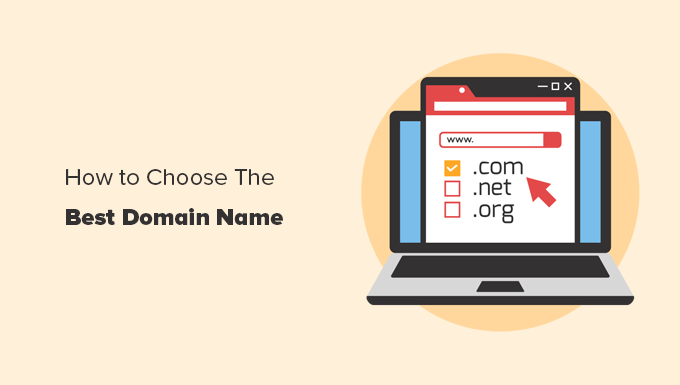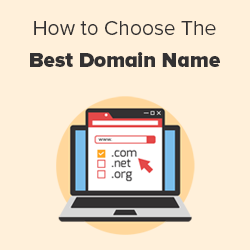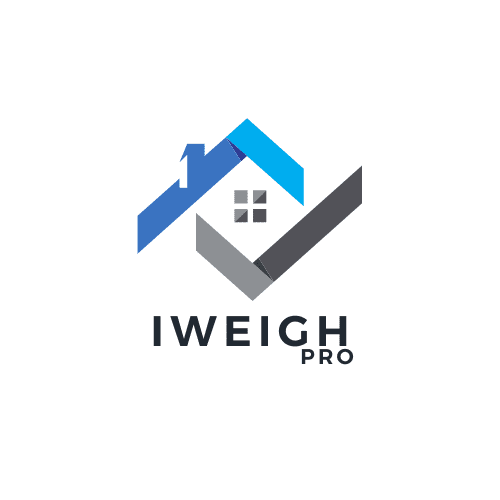Picking A Good Domain For Your Garden Website
Imagine you’re stepping into the world of gardening and you want to create a website to share your green thumb with the world. Well, friend, you’ve come to the right place! Today, we’re going to talk about the all-important task of picking a good domain for your garden website. So, get ready to dig deep into the wonderful world of domain names!
When it comes to creating a website, choosing the perfect domain name is like handpicking the most beautiful flower from your garden. It’s the address that people will type in to find your little oasis on the web, so it needs to be memorable and representative of your green passion. But don’t worry, we’re here to help you navigate through the options and find that perfect domain name that will make your garden website bloom!
A good domain name for your garden website is like a secret garden gate that invites visitors to step into your world. With the right domain, you can plant the seeds of curiosity and grow a community of fellow plant enthusiasts. So let’s get started on this journey and discover the wonders of picking a good domain for your garden website!
1. Reflect Your Garden Niche: Select a domain name that represents your garden website’s specific focus.
2. Keep it Short and Simple: Choose a domain name that is easy to remember and type.
3. Use Relevant Keywords: Include keywords related to your garden niche in your domain name.
4. Avoid Numbers and Hyphens: Stick to letters to keep your domain name user-friendly.
5. Check Availability: Ensure your chosen domain is available and not trademarked.
Follow these steps to find the perfect domain for your garden website!

Picking a Good Domain for Your Garden Website
Welcome to our guide on picking a good domain for your garden website! Choosing the right domain name is crucial for the success of your online presence, and it can significantly impact your website’s search engine optimization (SEO) and user experience. In this article, we will provide you with valuable information and tips to make the process smoother and help you create a memorable and effective domain that represents your garden website.
1. Consider Your Brand and Niche
When picking a domain for your garden website, it’s important to consider your brand and niche. Your domain should reflect the purpose and essence of your website. Think about your target audience and what they would search for when looking for garden-related content. Consider using keywords related to your niche in your domain name, as this can boost your SEO efforts. For example, if your website focuses on organic gardening, consider including phrases like “organic” or “sustainable” in your domain.
Furthermore, think about your branding and how your domain name fits into your overall brand identity. Your domain should be memorable and easy to spell. Avoid using numbers or hyphens that can confuse users. Aim for a domain that is short, concise, and aligns with your brand personality.
Lastly, check if the domain you want is available. Use domain registration platforms or domain name generators to help you brainstorm ideas and check availability. It’s essential to secure your desired domain before someone else snatches it.
2. Optimize for SEO
Search engine optimization (SEO) is crucial for driving organic traffic to your garden website. Your domain name can play a significant role in improving your website’s SEO. Including relevant keywords in your domain can help search engines understand your website’s purpose and improve your rankings for those keywords. However, be cautious not to overstuff your domain with too many keywords, which can make it look spammy.
Consider using location-based keywords if your garden website caters to a specific region or city. This can help you target a local audience and improve your chances of ranking higher in local search results.
Additionally, consider the readability and pronunciation of your domain. Avoid using complex words or abbreviations that may confuse users or make it harder for them to remember your domain. Opt for simple, easy-to-understand words that reflect the nature of your garden website.
3. Choose the Right Domain Extension
When choosing a domain extension, you have a variety of options beyond the traditional .com. While .com is the most common and widely recognized extension, you may consider other options that are more relevant to your garden website. For example, you can choose a country-specific extension like .co.uk for a garden website based in the United Kingdom.
Additionally, new domain extensions like .garden or .green can be used to create a more unique and specific domain that aligns with your niche. However, keep in mind that these newer extensions may not be as familiar to users as .com, and there may be some limitations or restrictions associated with them.
Consider the goals and target audience of your garden website when choosing a domain extension. If your website primarily serves a local audience, a country-specific extension might be the best choice. If you have a more global focus, .com is a safe bet. Ultimately, choose an extension that enhances your brand and helps users identify the purpose of your website.
4. Prioritize User Experience
While optimizing your domain for SEO is important, it should not come at the expense of user experience. Your domain should be easy to remember, type, and pronounce. It should also be free of any confusing characters or unnecessary words.
Avoid using numbers or hyphens in your domain as they can create confusion and make it harder for users to recall your website’s URL. Stick to simple, memorable words that reflect the essence of your garden website and make it easy for users to find you.
Consider conducting user testing or gathering feedback from friends and family to ensure that your chosen domain is user-friendly. It should create a positive first impression and entice users to explore your website further.
5. Protect Your Brand
Once you’ve chosen the perfect domain for your garden website, it’s essential to protect your brand by securing similar domains and social media handles. This prevents others from capitalizing on your success or confusing users.
Consider purchasing common misspellings or variations of your domain to redirect users to your primary website. Additionally, register your brand’s name on social media platforms to ensure consistency across different online channels.
By protecting your brand, you can establish a strong online presence and prevent any potential issues in the future.
6. Stay Up-to-Date with Industry Trends
Lastly, it’s important to stay up-to-date with industry trends and changes in the digital landscape. The world of domains and online branding is constantly evolving, and by keeping yourself informed, you can make informed decisions and adapt your domain strategy accordingly.
Follow reputable industry websites, attend webinars, and engage in discussions with fellow garden website owners. By staying informed, you can anticipate any changes or trends that may impact your domain strategy and adjust accordingly.
Remember, your domain is the foundation of your online presence, and investing time and effort into picking a good domain for your garden website will pay off in the long run.
Domain Hosting Services
When it comes to hosting your garden website, you have a multitude of options to choose from. Here are three popular domain hosting services:
1. Bluehost
Bluehost is a reliable and affordable hosting provider that offers a range of hosting plans suited for different needs. They provide excellent customer support, a user-friendly interface, and reliable uptime. Bluehost also offers a free domain name for the first year, making it a cost-effective option for beginners looking to launch their garden website.
Pros:
- Free domain name for the first year
- 24/7 customer support
- User-friendly interface
- Reliable uptime
Cons:
- Renewal prices are higher after the first year
2. SiteGround
SiteGround is known for its excellent performance and reliable hosting. They offer a range of hosting options, including shared hosting, cloud hosting, and dedicated servers. SiteGround also provides top-notch customer support and advanced security features to protect your garden website from potential threats.
Pros:
- Excellent performance and uptime
- Advanced security features
- 24/7 customer support
- Choice of different hosting options
Cons:
- Higher renewal prices
- Limited storage on shared hosting plans
3. HostGator
HostGator is a popular hosting provider known for its affordable plans and user-friendly interface. They offer a variety of hosting options suitable for different budgets and website needs. HostGator also provides a free website builder, making it a convenient choice for beginners who want to create their garden website without coding knowledge.
Pros:
- Affordable hosting options
- User-friendly interface
- Free website builder
- 24/7 customer support
Cons:
- Renewal prices can be higher
- Some plans have limited features
Domain Privacy Protection
When registering a domain, you have the option to enable domain privacy protection. Here are three reasons why domain privacy protection is essential:
1. Protects Your Personal Information
Enabling domain privacy protection ensures that your personal information, such as your name, address, and contact details, remain private and hidden from public WHOIS databases. This prevents individuals or organizations from accessing your personal information without your consent.
Example:
Domain Privacy Protection:
Registrant Name: Domain Protection LLC
Registrant Organization: Domain Privacy Service
Registrant Street: 123 Privacy Lane
Registrant City: Privacyville
Registrant State/Province: Privacyland
Registrant Postal Code: 123456
Registrant Country: Privacyland
2. Reduces Spam and Unwanted Communication
By enabling domain privacy protection, you can minimize the amount of spam emails, telemarketing calls, and unwanted communication you receive. Without your private contact information being publicly available, it becomes challenging for spammers and marketers to target you based on your domain registration.
3. Prevents Unwanted Website Targeting
Having domain privacy protection in place prevents others from easily gathering information about your website, such as the date it was created or when it will expire. This can help prevent malicious individuals or competitors from gaining valuable insights about your online presence and potentially using that information against you.
In conclusion, picking a good domain for your garden website requires careful consideration of your brand, niche, SEO optimization, user experience, and domain extension choice. By following the tips we’ve provided and considering your specific needs and goals, you can choose a domain that represents your garden website effectively and sets the stage for success.
Key Takeaways: Picking a Good Domain for Your Garden Website
– Including keywords related to gardening in your domain can help with search engine optimization.
– Avoid using numbers or hyphens in your domain, as they can make it harder to remember.
– Consider using your brand name or a catchy phrase as your domain to stand out.
– Research and check the availability of the domain before making a final decision.
Frequently Asked Questions
Are you looking to create a garden website but unsure about choosing the right domain name? We’ve got you covered! Here are some frequently asked questions and answers to help you pick a good domain for your garden website.
1. Why is choosing a good domain important for my garden website?
Choosing a good domain name is crucial for your garden website as it serves as your online address. A memorable and relevant domain can attract visitors, make your website more discoverable, and establish credibility. It helps users understand what your website is about at a glance and encourages them to click through.
Moreover, a good domain name can enhance your search engine optimization (SEO) efforts. Including relevant keywords in your domain can improve your website’s visibility in search engine results, making it easier for potential visitors to find you.
2. How can I come up with a unique and catchy domain name for my garden website?
To create a unique and catchy domain name, start by brainstorming relevant keywords and phrases related to gardening. Consider words that evoke the essence of your garden website, such as “bloom,” “green,” or “seed.”
Next, try combining these words in different ways or adding prefixes or suffixes to create a distinctive domain name. Keep in mind that shorter domain names are often easier to remember and type. You can also use domain name generators or consult friends and family for their input. Remember to maintain simplicity and avoid complex terms.
3. Should I use hyphens or numbers in my garden website’s domain name?
Using hyphens or numbers in your garden website’s domain name can make it harder for visitors to remember and type correctly. It may also create confusion when sharing your domain verbally. For example, if your domain is “my-garden-website.com,” users might mistakenly type “mygardenwebsite.com” without the hyphens.
It’s generally recommended to opt for a domain name without hyphens or numbers unless it’s absolutely necessary to convey your website’s name or branding.
4. Is it better to choose a domain with a .com extension for my garden website?
While .com is the most common and widely recognized domain extension, it doesn’t necessarily mean you have to choose it for your garden website. Depending on your website’s purpose and target audience, you might consider other domain extensions like .org, .net, or country-specific extensions like .co.uk or .au.
However, keep in mind that .com domains are generally more familiar to internet users and tend to be easier to remember. If you aim for global reach or commercial purposes, a .com domain is often a safe and reliable choice.
5. Can I change my garden website’s domain name in the future?
Yes, it is possible to change your garden website’s domain name in the future, but it can come with certain challenges. Changing your domain name can affect your website’s SEO, as search engines may take time to recognize and index the new domain. You may experience a temporary decline in search rankings and traffic.
If you’re determined to change your domain, make sure to plan the transition carefully. Redirect your old domain to the new one, update all internal and external links, and inform your audience about the change to prevent any confusion. It’s generally best to choose a domain name that you can stick with for the long term to avoid the hassle of changing it later on.

Choosing a Domain Name: Do This FIRST!
Summary
Choosing a great domain name for your garden website is important for attracting visitors. A domain that is short, easy to remember, and relevant to your garden content will make it easier for people to find you online. It’s also a good idea to consider using keywords that describe your garden niche in your domain name. This can help improve your website’s visibility in search engine results. Additionally, it’s important to check if the domain is available and avoid using trademarks or copyrighted names. By following these tips, you can select a domain that will enhance your garden website and make it a success.
